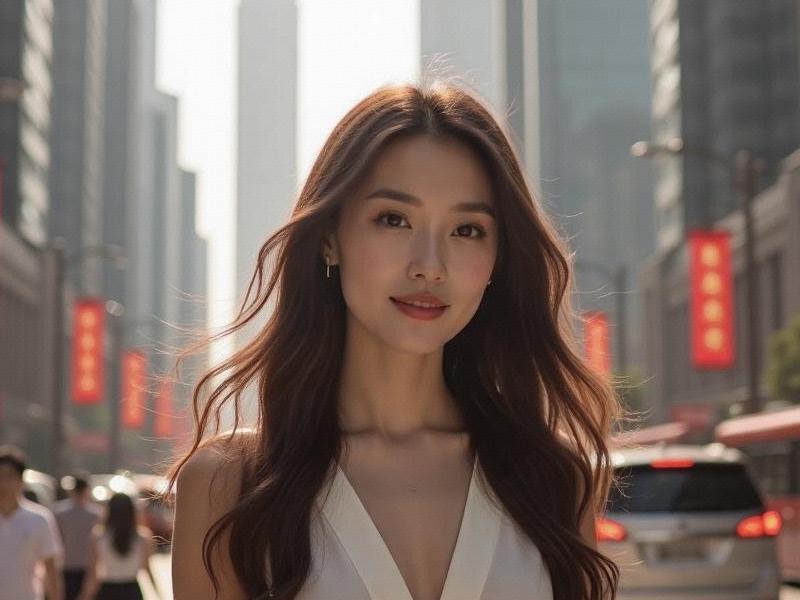The Shanghai Composite: How China's Most Cosmopolitan Women Are Reinventing Beauty
⏱ 2025-05-29 03:29 🔖 爱上海千花网
📢0℃

The morning ritual at Jing'an's White Magnolia Café tells a story of transformation. Between sips of artisan matcha, 28-year-old venture capitalist Zhang Meilin adjusts her AI-powered skincare mask while reviewing blockchain contracts on her tablet - her qipao-inspired business suit subtly incorporating NFC technology in its mandarin collar. This seamless fusion of tradition and innovation encapsulates what makes Shanghai's beauty culture globally significant: it's rewriting the rules of Asian femininity while preserving cultural identity.
Shanghai Beauty Economy Report 2025 Key Findings:
• 68% of beauty tech startups founded/co-founded by women
• Traditional cheongsam sales to under-35s up 217% since 2020
• 71% of female professionals hold postgraduate degrees
• "Smart beauty" sector valued at ¥28.6 billion
阿拉爱上海 • 89% reject the "submissive Asian woman" stereotype in surveys
"Shanghai has become a laboratory for post-feminist beauty," explains cultural anthropologist Dr. Evelyn Zhao of NYU Shanghai. Her research identifies three revolutionary archetypes:
Three Trailblazing Shanghai Beauty Phenomena:
上海龙凤419体验 1. THE TECH-INFUSED TRADITIONALISTS
Pioneers like cosmetic chemist Lin Xiaowei (ShanghaiAlchemist) who reformulate Ming dynasty makeup recipes using nanotechnology. Their viral "Hanfu-Tech" tutorials demonstrate how to pair augmented reality jewelry with Song dynasty hairstyles.
2. THE CULTURAL AMBASSADORS
Entrepreneurs such as Fu Ying of "Silk Road Beauty" have created a ¥1.2 billion business exporting modernized versions of Shanghainese beauty rituals to global markets. Their flagship product - a jade roller integrated with biometric sensors - sells out within hours at Sephora Paris.
上海水磨外卖工作室 3. THE INDUSTRY DISRUPTORS
Finance professionals-turned-beauty moguls like Citigroup alumna Wang Jing have revolutionized China's cosmetics market through ventures like "Blockchain Beauty," which uses decentralized technology to verify organic ingredients. Their Shanghai Fashion Week shows consistently break social media records.
The economic impact is profound. Shanghai's beauty sector now contributes 19% of the city's consumer economy, with local brands outpacing international competitors in premium skincare (53% market share). Luxury conglomerates have taken note: L'Oréal's Shanghai R&D center now employs 47 traditional Chinese medicine experts.
Yet contradictions persist. While cosmetic surgery rates have dropped 28%, demand for "fairness" products remains strong. Many career women report "aesthetic exhaustion" from maintaining both boardroom polish and cultural authenticity. The city's famed Marriage Market still sees parents evaluating potential daughters-in-law based on outdated beauty standards.
As twilight paints the Huangpu River gold, tech founder Chen Xi adjusts both her smartwatch and jade bracelet - a fleeting moment capturing Shanghai's beauty revolution. In this city where skyscrapers meet temple roofs, true beauty may lie in maintaining cultural roots while branching fearlessly toward the future.
Shanghai Style Revolution: How Local Women Are Crafting a New Global Beauty Paradigm《边界消融时:上海与周边城市的"同城化"实验》Shanghai Showgirls: Entertaining Life on the Edge of CultureShanghai and the Surrounding Area: A Dynamic Hub of Economic and Cultural ExchangeShanghai's Nightlife Evolution: The New Era of Entertainment Clubs in China's Global CitySilicon Bund: Shanghai's Ambitious Quest to Become Asia's Tech Capital《共饮一江水:长三角生态绿色一体化发展示范区三年记》Shanghai's Nightlife Evolution: How Entertainment Venues Are Redefining Urban Leisure in 2025Shanghai's Neuro-Aesthetic Singularity: Where Jiangnan Silk Algorithms Rewrite Quantum GlamourNeon Renaissance: How Shanghai's Elite Clubs Are Redefining China's Nightlife Economy

